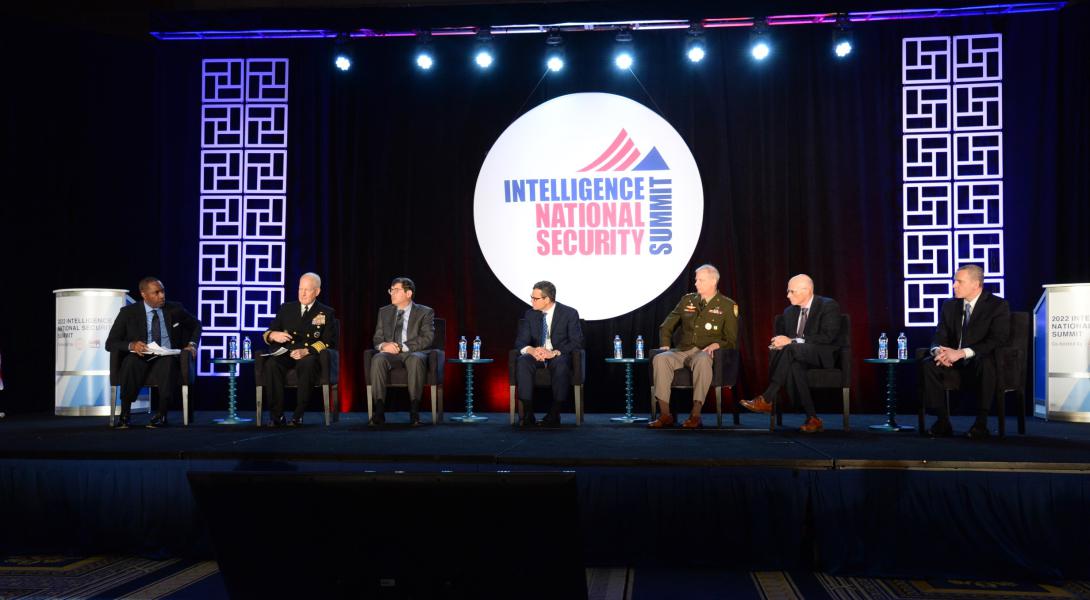Intel Leaders: Russia Needs To Reevaluate Objectives
Russian President Vladimir Putin has so far failed to achieve his goals in Ukraine and may need to reevaluate his objectives, according to a panel of high-ranking intelligence agency officials.
The officials spoke on the last panel of the day at the Intelligence and National Security Summit 2022. The panel included Army Lt. Gen. Scott Berrier, director of the Defense Intelligence Agency; Vice Adm. Frank Whitworth, USN, director, National Geospatial-Intelligence Agency; George Barnes, deputy director, National Security Agency; David Cohen, deputy director of the Central Intelligence Agency; Christopher Scolese, director of the National Reconnaissance Office; and Paul Abbate, deputy director of the Federal Bureau of Investigation.
“I believe the Russians planned for an occupation, not necessarily an invasion. That has set them back because they underestimated the Ukrainian will to fight,” Gen. Berrier noted. “The Ukrainians have done really, really well. They’re doing really, really well right now.”
He added that “this is really tough on the Russians” because they have expended a lot of resources they have not yet mobilized. “They’re coming to a point where I think Putin may have to reevaluate what his objectives are for this operation. It’s pretty clear right now … he’s not going to be able to achieve what he intended to do.”
It is impossible, however, to predict Putin’s next move. “I think he’s coming to some decisions. What those decisions will be nobody knows, but that will largely drive how long this conflict will last,” Gen. Berrier said.
Adm. Whitworth concurred, saying that Russia is at “a possible inflection point,” but that over the past 100 years, Russia has not given up easily even if they begin a conflict horribly. “They become a learning organization, and they adjust. They’ve got a possible adjustment in store, and we’ll see what comes next. We’re going to be vigilant no matter what they decide.”
Barnes suggested that Russia’s intent to occupy Ukraine led to the relatively light use of cyber attacks during the conflict so far. It is likely the Russians did not want to destroy technology infrastructure they could use. “They were looking for an occupation, so that covered their calculous with respect to the level of destruction because they expected to actually roll in and operate, and they didn’t want to bring down something that they in turn needed to use.”

I believe the Russians planned for an occupation, not necessarily an invasion. That has set them back because they underestimated the Ukrainian will to fight.
More cyber attacks are possible, however. “Fast forward to now. Things aren’t working out too well on the ground. So, we continue to watch for indicators they will exert influences, capabilities, technologies that they had had. They’re extremely capable as we’ve seen with their operations against others,” Barnes said.
The panelists also suggested that lessons learned from the Russia-Ukraine war might apply to the situation between China and Taiwan since China has made clear it wants the military capability to conquer Taiwan if it decides to do so.
Cohen pointed out that like Russian forces before its invasion of Ukraine, China’s military has not seen combat in a number of years. The intelligence community, therefore, is assessing whether Xi Jinping, general secretary of the Chinese Communist Party, will have confidence in his own military after watching what has happened to Russia.



Comments